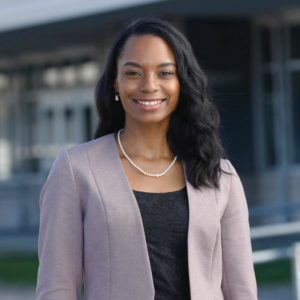
by Bus Admin | Jun 18, 2020 | Uncategorized
Written by Miki Kusunose, High School Bus Volunteer
We are pumped to announce The Washington Bus’ first round of endorsements! These candidates are advocating for a future we believe in and are empowering young people every step of the way.

T’Wina Nobles– State Senator, LD 28 (parts of Tacoma, Firecrest, University Place, Lakewood, Steilacoom, DuPont)
Running for State Senate in Legislative District 28, the current President of the Tacoma Urban League and two-time University Place School Board Director is pushing for access to quality education, workers’ rights, empowerment of women and girls, and addressing the housing crisis in her campaign.
She champions working with the community: “I will not create policy that is attempting to deal with discrimination due to race, ability, national origin, religion, sexual orientation, gender identity and/or gender expression without ensuring that there are activists, community members, and organizations at the table in partnership.”
With experience in education, Nobles advocates for the voices of youth. She wants to ensure all students have their voices heard and pursues equity in the education system. As a co-founder of Ladies First, a program supporting young women in schools, she wants to elevate and amplify the voices of women. Nobles seeks to serve her community as she channels her experience from previous community work, from the Poverty Action Network to Multicare’s West Region Mary Bridge Board.
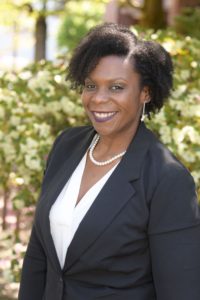 Jamila Taylor– State Representative LD 30 (Federal Way, Des Moines, Auburn, Algona, Pacific, Milton)
Jamila Taylor– State Representative LD 30 (Federal Way, Des Moines, Auburn, Algona, Pacific, Milton)
Taylor seeks to represent Legislative District 30 as a State Representative. As a business owner, attorney, and a consultant to businesses and nonprofits, she believes the state needs leaders who can address the “shared concerns about post-COVID-19 economic recovery, homelessness and affordable housing, public safety, health care, and equity.”
“I believe that despite Washington’s attempt to be a progressive region, the vestiges of racially discriminatory practices and policies still have impact on communities of color.” Taylor continues: “My presence as a woman of color in the state legislature is not enough. I must be willing to have the difficult, and critical conversations, in public AND behind the scenes.”
Taylor believes incorporating the voice of youth is critical to politics and strives to embody that ideal in her campaign for State Representative: “ I support a fair and equal democracy and will urge all of my constituents towards civic engagement.”
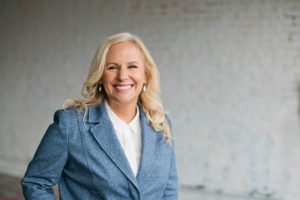 Mari Leavitt– State Representative LD 28 (parts of Tacoma, Firecrest, University Place, Lakewood, Steilacoom, DuPont
Mari Leavitt– State Representative LD 28 (parts of Tacoma, Firecrest, University Place, Lakewood, Steilacoom, DuPont
As a champion of health care, Leavitt strives to address inequities in her community. Leavitt is running for State Representative of Legislative District 28. Her experience as a State Representative, a PTSA leader, a business owner, and a mother makes Leavitt a multi-faceted community leader.
“As a daughter of a Japanese mother and mother of two African American children, and one who has lived in multicultural environments as a military kid, I’m especially aware of the critical nature that equity is to health, education, and employment options for the success of disadvantaged young people. Every decision I make is viewed through a lens of equity for communities.”
Leavitt values the voice of youth in the community: she has worked with college leadership groups to increase civic engagement and co-founded the Community and Technical College Student Voice Academy. Her experience as Vice Chair of the College and Workforce Development Committee let her listen to the voices of student leaders from across the state.
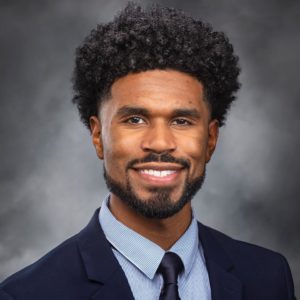 Jesse Johnson– State Representative LD 30 (Federal Way, Des Moines, Auburn, Algona, Pacific, Milton)
Jesse Johnson– State Representative LD 30 (Federal Way, Des Moines, Auburn, Algona, Pacific, Milton)
As one of the youngest figures in the State Legislature, Johnson advocates for young voters: ” I think having the perspectives of more young people in elected offices and other positions of power is essential if we are going to address the challenges facing young people — affordability, education, and opportunity and the global challenge of addressing climate change.”
He channels his experience as a community leader and council member in Federal Way as he works to address the disproportionate effects of climate change on low income communities, continues to support De-Escalate WA for gun reform, and pledges to fight for criminal justice reforms.
Johnson carries a plethora of experience when it comes to involving youth in politics. He currently works as a Staffing Analyst in Workforce Planning and Development for Highline Public Schools and has committed countless hours in organizing youth forums, youth violence prevention programs, and providing apprenticeship/post-secondary education opportunities.
Marko Liias– Lieutenant Governor (Statewide!)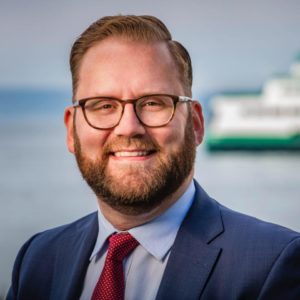
The current State Senator to the 21st Legislative District now seeks to run for Lieutenant Governor. As the first millennial elected to State Office himself, Liias is a fervent advocate for incorporating young voices in today’s world of politics.
Liias channels his commitment to serving the youth and translates it into legislative action: “I have put an emphasis on the issues that matter to young people in Washington, including higher education and debt reform, increased wages, and investments in a clean energy future.”
As one who identifies as LGBTQ+ as well as a white man, he has used his experience and understanding of his position to represent the voices of Washingtonians that are often marginalized and underrepresented. He is a member of the Senate Ways & Means Committee, which addresses affordable housing and homelessness, has helped create the Office of Firearm Safety and Violence Prevention, and champions mental/behavioral health measures, along with many others. Liias writes: “I am a proud, lifelong Washingtonian. I would not be who I am or what I am, without this place. As I take this next step, I am more committed than ever to expanding opportunity and building on the progress we have made together.”
by Bus Admin | Jun 16, 2020 | Uncategorized
Written by Miki Kusunose, Bus Volunteer
For many teenagers like me, the Black Lives Matter protests in the wake of the murder of George Floyd, Ahmaud Arbery, and Breonna Taylor have felt monumental and oftentimes overwhelming. As people my age approach adulthood, the deep scars of society, the kleptocratic realities of this country, and the realization that the biases within ourselves are intrinsic to systemic racism, are emerging in the consciousness of my generation. In short, it is a lot to process.
Truth to be told, this reality is not new—we simply have reached the age to come to an understanding of its existence. Systemic racism set foot on this continent in 1619 when the first Black slaves arrived in Jamestown, continued in the Reconstruction era through the rise of Jim Crow, persisted when “separate but equal” became the norm through Plessy v. Ferguson, and seeped into the deepest roots of America as “White Only” signs plastered store windows. Even after the Civil Rights Movement in the 60’s, America failed to acknowledge and uproot this systemic racism and the current condition of Black America serves as a clear testament to that truth. Black people are subject to racial profiling, unequal access to resources, astronomically higher incarceration rates, poorer education, and higher rates of poverty. Systemic racism has stained every inch of the fabric of American society. Again, it is a lot to process and difficult to come to terms with.
But I am hopeful and optimistic. The outrage by young people and the outpouring of support that I am seeing from those around me tells me that the current events will be a true catalyst for change. Nonetheless, it is easy to feel overwhelmed and not know what to do to help out with the Black Lives Matter movement.
Here are a few things that every teenager can do to enact change in our communities.
- Attend your local city council meetings: It is easy to get caught up in the national headlines when keeping up with the news. However, the most effective way to address systemic racism is by addressing it in your local community. As a teenage community member, your voice as a young person carries a powerful conviction especially in a local context. Voice your concerns through a Public Comment during a city council meeting. The Seattle City Council allows anyone to sign up for a Public Comment 2 hours prior to the council meeting. Seattle City Council’s meetings are now all held online. Public testimonies through Zoom are available for the Renton City Council meetings, and written requests can be sent in for Bellevue City Council. Make sure to check your city’s policies on citizen participation for city council meetings.
- Get involved with and/or donate to Bail Funds: Thousands of people are in pre-trial jail in which many of whom need bail assistance to leave. Moreover, many of these people have not even been convicted of a crime—yet, they are held in jail. Incarceration rates for Black people are six times higher compared to white people in Washington State and this leaves many Black people struggling to break loose out of a criminal justice system that criminalizes them. Use-of-Force rates are significantly higher on Black people and unsurprisingly, a disproportionately large number of police complaints are filed by Black people. Donations to the Northwest Bail Fund, for example, can support those in pre-trial jail in King and Snohomish county. Now more than ever, these people need the support to go back to their families and their lives. Bail Funds are an effective way to have an immediate impact on the local community.
- Keep your representatives accountable: Whether it be your district representative into the United States Congress, Washington State Legislature, or local community leaders, these representatives’ duty is to voice your concerns and demands on an institutional level. Do not hesitate from writing emails and letters to your local representatives. Maria Cantwell and Patty Murray are the Senators representing Washington State. Pramila Jayapal represents Washington’s 7th Congressional District (Seattle, Shoreline), Adam Smith represents the 9th District (Bellevue, Renton), and Suzan DelBene represents the 1st District (Redmond, Bothell). I also urge you to reach out to Washington State legislatures in your local district: https://app.leg.wa.gov/DistrictFinder/Home/GetMobileMapView?lat=0&lng=0. Find both your Congressional and Washington State Legislature Representatives in your local district using this website. Equally important is the executive office of King County, headed by Dow Constantine who serves 4 year terms: he will be up for reelection in 2021. The 2020 August Primaries are especially important knowing that the next Attorney General (currently Bob Ferguson) will be elected. The Office of the Attorney General is responsible for criminal justice, public safety, and economic justice amongst many other duties. With the current pressures to reform public safety in Seattle, keeping the Attorney General accountable will be critical to the success of the Black Lives Matter movement.
- Research, have conversations, and engage in introspective reflection: This monumental time offers us a critical time to research about systemic racism that is deeply rooted in American society. It is omnipresent in both the timeline of American history as well as today’s modern American society. Take the time to read books and publications to immerse yourself in how your life is interwoven in this society. A few books that I consistently come across regarding Black history are, So You Want to Talk About Race by Ijeoma Oluo, Between the World and Me by Ta-Nehisi Coates, and The New Jim Crow by Michelle Alexander. I can speak personally to Between the World and Me, and that Coates’s powerful writing, strong conviction, and clear message offered me a deep look into the life of Black man in America. This tumultuous time also makes for a great time to reflect upon yourself. Ask yourself, what privileges do I have because of the color of my skin? How do my actions feed into systemic racism? When do I unknowingly buy into implicit biases based on race? These are difficult, but critical questions to ask yourself as an American.
I hope the four things above can serve as a guideline to how teenagers like me can be involved in this fight for racial equality. Diving deep into your local community as well as yourself during these times can make for transformative conversations and institutional change which will be critical to the success of this movement.
by Bus Admin | Jun 3, 2020 | General Updates/Newsletter, Issues & Policy
The Washington Bus joins with many across our state and country in calling for justice in response to the centuries of white supremacy and systemic violence against Black people in America. Breonna Taylor, Tony McDade, and George Floyd are the most recent names added to a shamefully long list of Black people and other people of color who have been murdered by police. Over the weekend in Seattle, we saw young people leading the disruption of police racism through protest — a physical manifestation of the collective grief, anger, and loss built up over generations of violence against Black and Brown people. These young Washingtonians risked their physical safety in putting their bodies on the line post-curfew; a curfew that was announced only 10 minutes prior to its enforcement.
In response to young people’s outcries for justice and physical witness demanding swift institutional transformation, city, county, and state executive leadership chose to escalate by meeting protestors with police in riot gear and chose to militarize by bringing in the National Guard. Local and national news coverage focuses on the destruction of property and violent protests as the narrative worth highlighting; this is woefully inaccurate. Protecting property should never be the priority over the protection of human life and dignity. Systemic state violence against Black and Brown bodies is the true narrative. Racism kills. Sanctioned police violence must end.
Any statement from elected leaders who are not calling for divestment from the police and military are perpetuating white supremacy. As a non-Black led organization, we stand with our Black community saying that enough is enough. We demand change.
As we commit to this change through a shift in our programs and strategies, we are calling on Governor Inslee, State Legislators, County Executives, Mayors, and City officials across the state to dismantle racist practices in all our institutions that they have authority over by following the demands of our Black communities:
- Remove policing from our schools and shift that funding to hire more counselors and mental health professionals for Black and Brown students.
- Prohibit any use of police funds for militarizing the police force.
- Shift funds from city police departments, county sheriffs, and state patrol to public health, housing, education, and economic efforts focused on Black and Brown communities.
- End detentions and deportations that impact Black immigrants.
- Have City Attorneys stop the prosecution of protesters.
In Seattle, to promote accountability and transparency:
- Cut the Seattle Police Department budget by 50%, and reallocate those funds to support Black and Brown led community police efforts.
- Withdraw the motion to terminate the sustainment plan of the consent decree from federal county.
- Abide by the City of Seattle Policy accountability legislation as was unanimously passed by the Seattle City Council.
- Stop fighting against the formed inquest process of King County
- Require officers to show up to testify when summoned as a part of inquiries when an officer involved killing occurs.
We are at a crossroads as a city and nation. We have the chance to be on the right side of history. We have seen in other cities that a world without police is possible, it’s already here, and it’s already working. Our work is to make it permanent.
Where to donate (if you are able):
Northwest Community Bail Fund https://www.nwcombailfund.org/
Black Lives Matter Seattle/King County https://blacklivesseattle.org/bail-fund/
WA-BLOC https://wa-bloc.org/donate/
Not This Time https://www.notthistime.global/donate-today/

 Jamila Taylor– State Representative LD 30 (Federal Way, Des Moines, Auburn, Algona, Pacific, Milton)
Jamila Taylor– State Representative LD 30 (Federal Way, Des Moines, Auburn, Algona, Pacific, Milton) Mari Leavitt– State Representative LD 28 (parts of Tacoma, Firecrest, University Place, Lakewood, Steilacoom, DuPont
Mari Leavitt– State Representative LD 28 (parts of Tacoma, Firecrest, University Place, Lakewood, Steilacoom, DuPont Jesse Johnson– State Representative LD 30 (Federal Way, Des Moines, Auburn, Algona, Pacific, Milton)
Jesse Johnson– State Representative LD 30 (Federal Way, Des Moines, Auburn, Algona, Pacific, Milton)
